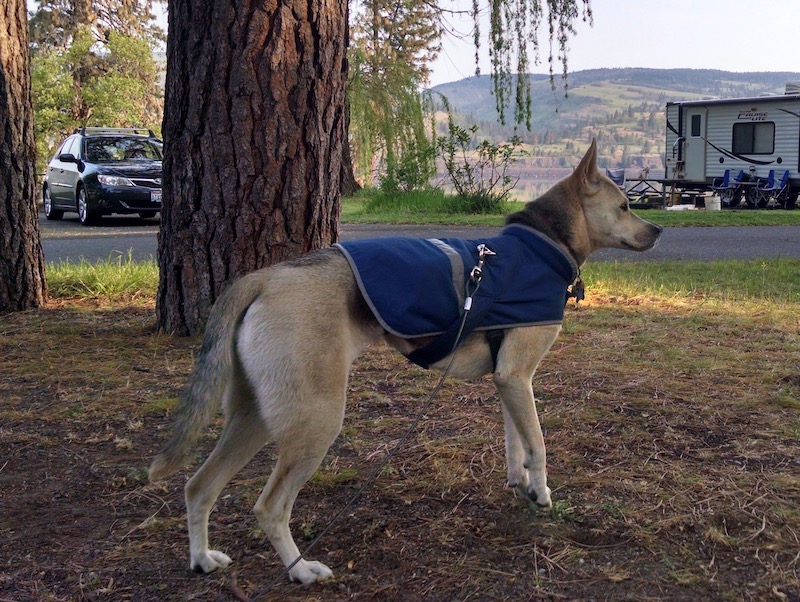We’ve talked about why we get backlink requests, but what do they look like? So glad you asked. Let’s talk about my dog.
Five years ago I tried to take my dog hammock camping. She got cold overnight, and I had to put her in the car to get warm. When I wrote up the trip on my personal website, I linked to a dog sleeping bag manufacturer, since I naïvely thought my dog would sleep in one and keep warm (spoiler alert: she will not).

A couple weeks ago, I got a backlink request from a website that wrote up a guide to buying a dog sleeping bag. This request fit the form of a standard backlink request template so well that I based a fill in the blank backlink generator request on it:
Having trouble? View this embedded page on its own.
This isn’t the exact email I got, but it’s close enough to get an idea of the structure of a request. They try to include a little information about you, which they can look up online (like your job title). They include something vaguely complimentary (like calling your post “amazing”). Then they explain how their site would fit perfectly in with your content before wishing you well.
I think the process goes like this. Someone writes a vague template, based on a script available on some SEO website. Then they search for some term like “College scholarships” or “Student Resources”, and go through the top 50 or 100 pages, emailing the site owner with an email customized just enough that it won’t feel generic, unless you get a lot of backlink requests.
So how do you respond?
Consider not responding at all. There are ways to automate gathering contact information (using a WHOIS record or various screen scraping techniques), so it’s entirely possible that your request was sent by a script, instead of a person. Don’t feel bad about ignoring a computer.
Definitely don’t click on the link they sent you. If someone sends you an unsolicited link, never ever ever* click on it. If you’re really curious, at least Google the url first. See what you can learn about the page. Don’t just trust the text of a url – there’s ways to spoof that too.
You can also just forward those requests to us. Believe me, we get a lot of them. Our general rule is to not respond to backlink requests for commercial websites, and to avoid including links to commercial websites in our pages. We sometimes make exceptions for local, non-profit organizations. But since those organizations are part of our community and usually know someone at Lane, they tend not to reach out using a form email.
Remember, linking to a website from your page can provide an implicit endorsement of that page. Make sure you trust what you’re linking to.
* ever ever ever ever ever ever.

This was a great analogy! Thanks for taking time to explain backlink requests:)